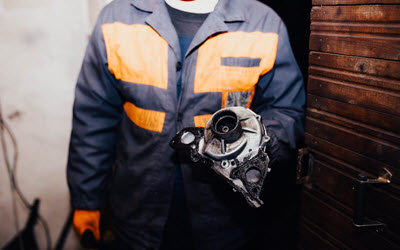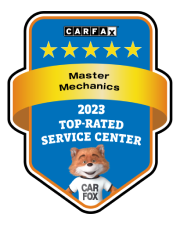With its inexplicable charm, punchy engine, adept handling and stylish design. Your Mini also needs proper maintenance of its parts. Reliability is the ability of your Mini to run consistently with few surprises. Whether you own or planning to buy one, you should be aware of major and minor reliability issues that come with this brand. Staying abreast with trouble will ensure that you make prior arrangements in preparation for what might occur as your Mini gains mileage.
Power Steering Pump Failure
This problem has been reported mostly in the 2002 to 2007 and 2012 Minis. Numerous owners of 2002-2007 and 2012 Mini Cooper models have reported issues with their power steering pump. In 2015 Mini recalled 86,018 cars built for model years 2002 through 2005 for this same reason. The R50 Cooper and R53 Cooper S Hatchback as well as convertibles were the most affected.
A low-battery warning at engine startup and a slight drop in steering assist are the main signs your car power steering pump is failing. In the hope of freeing up engine efficiency and horsepower, the manufacturer eliminated the engine-driven belt pump and replaced it with a classic hydraulic power steering system that is propelled by an electric motor.
The pump is located below the exhaust manifold, which is a very hot place. Electric systems don’t like heat. There is a fan placed underneath the pump to cool it, but it is prone to damage from road debris. The pump can overheat and burn out if this is the case.
Transmission Failure
This is one of the most common problems to watch out for on your Mini. It’s also among the problems that have the highest repair cost. It is attributed to the manufacturer claiming that your Mini does require routine transmission fluid services.
In the real sense, you should receive a transmission service every 30k to 40k miles. A failing transmission system will strain other parts of the car and eventually cause damage to them due to overheating. A burning smell, noisy transmission in neutral, gear slippage, dragging clutch and difficulty going into gear are signs to watch out for a malfunctioning transmission.
Water Pump and Thermostat Housing Leaks
These problems are common with the first-generation and second-generation Minis. The thermostat housing is made of plastic and will in due course submit to wear and tear with age. A thermostat helps to regulate the temperature of the engine and its vital parts. It is guarded against harsh conditions by the plastic housing which also ensures the engine coolant does not leak.
When you start to receive OBD codes, if the thermostat valve is stuck open or closed, low coolant warnings, and an inoperative heater, these all point to a thermostat problem.
Clutch Failure
Clutch failure is another significant repair that Minis experience. Your Mini’s clutch tends to wear out prematurely. The most affected are the first- and second-generation Minis and affects manual transmission due to constant use. If you start to experience diminished engine performance, gear shifting issues, pedal and sound difference then definitely you are headed for a clutch failure.
Make sure you seek assistance from a specialized repair shop to avoid further damage to other parts of your mini. Neglecting routine maintenance procedures of your clutch can lead to problems that will only deteriorate over time.
Electric Door Lock Malfunction
Models of 2004 to 2005 and 2008 to 2011, as well as 2013 to 2016 Mini Coopers have been affected by faulty electric door locks. Entering or exiting these models has been reported to be a problem. To be able to continue to use the vehicle, replacement of the faulty door is necessary.
Radiator Support Issues
Low ground clearance makes the mini vulnerable to radiator support issues. The radiator support is made of plastic to reduce weight but this has made the support very vulnerable to poor roads and bumps. The lower coolant hose is lower below and if it makes contact with objects or a high curb it could cause numerous damage.
Variable Valve Timing (VVT) Problems
The VVT works directly with the valve lift to improve the way your car drives and consumes fuel, ensuring none of the fuel is wasted. It was developed to make the car drive faster while saving fuel simultaneously. Owing to the inadequate oil in the Mini’s VVT there is increased friction, which results in engine idling and reduced gas mileage. When you notice a change in how your car handles fuel, check in a certified garage to solve your problem.
Careful and smooth driving makes your mini serve you better and longer. Ensure that you maintain the scheduled service and also never ignore any slight signs of a fault to get the best out of your Mini. Be sure to service your Mini at professional certified garages only to avoid further escalation of fault.
Visit Master Mechanics Auto Repair
Under the able leadership of Jamin Rewa, who has over 20 years of experience working at other  respected shops in Kalamazoo and Master Mechanics Auto Repair, formerly Known as European Import Service, is the place to be. Rewa has built a reputation for dependable and trustworthy work while the European Import Service has been a respected repair facility in Kalamazoo for over 40 years.
respected shops in Kalamazoo and Master Mechanics Auto Repair, formerly Known as European Import Service, is the place to be. Rewa has built a reputation for dependable and trustworthy work while the European Import Service has been a respected repair facility in Kalamazoo for over 40 years.
We specialize in A/C Repair, Brake Repair, Check Engine Light Service, Computer & Electrical Diagnostics, Engine repairs, Factory scheduled services, Mileage specific maintenance, Oil & fluid changes, Suspension & Steering maintenance, Transmission repairs, Tire/Wheel maintenance.
Our ASE certified mechanics will perform all services and use the latest factory grade tools and equipment to further ensure quality service with each visit. We are experts with Mini, Audi, BMW, Fiat, Jaguar, Land Rover, Mercedes, Porsche, Saab, Smart, Volkswagen, and Volvo.
Visit us at 3219 E Kilgore Road in Kalamazoo, MI 49001 or call us at 269-373-9000. We are open Monday through Friday from 8 am to 5:30 pm. We are closed on Saturday and Sunday.



